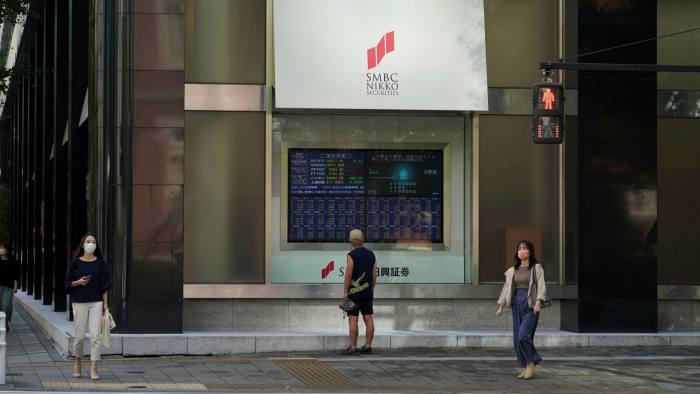
Five years ago, when Abenomics was still very much a thing and Japan’s investment case could be sold to global funds with a 10-second elevator pitch, the country’s Financial Services Agency looked almost heroic. Finally, it seemed, foreign and domestic shareholders had the public sector champion they needed to make corporate Japan sweat a little harder in their interests. The FSA, empowered by the prime minister, Shinzo Abe, produced (and later toughened) the country’s first corporate governance and stewardship codes. They provided investors with new articles of faith and the tools for long-overdue change. The FSA seemed the most serious tailwind for Tokyo’s ambitions as a global financial center. But the current imbroglio at Japan’s third-largest brokerage, SMBC Nikko, has thrown that heroic momentum into reverse. A regulatory investigation that on its own might have been interpreted as a show of FSA strength looks increasingly like either a misjudged warning shot or a severe crisis of confidence, now that it has been escalated to a criminal case. Four bankers, including one of the most senior foreigners working in Tokyo for a domestic brokerage, are under arrest and in indefinite custody on suspicion of criminal market manipulation, which they all deny. A senior trader died after days of regulatory interrogation in circumstances his friends blame on stress. The arrests followed the case being controversially handed to prosecutors after an eight-month probe of Nikko’s equity department by the FSA. Stories of the regulator’s ferocity, described by multiple people involved, include 10-hour interrogations, weekend sessions, home visits from officials, and sick leave for traumatized bankers. Many, citing the rapid departure of big institutional clients, now see Nikko’s equity department as doomed. The potentially damning aspect for the FSA, though, is that the limited evidence available (which includes leaks to local reporters by the prosecutors) suggests they were indeed onto something. The suspected manipulation centers on allegations that Nikko’s proprietary trading desk was boosting the share prices of companies whose stock the bank was selling off-market in large blocks. Such block trades often take place in greyish regulatory areas where non-public information on the sale is shared with multiple potential buyers. Nikko handled many of these. And it was doing so in part because of the FSA’s success in helping investors push listed Japanese companies into unwinding their “cross-shareholdings”. The investigation seems to have focused on a number of these blocks where the market price fell sharply in the days ahead of the sale itself on higher than usual volumes, suggesting word of the coming deal had leaked and market participants were short selling. If the price dropped below the minimum level set by the seller, Nikko’s prop desk appears to have bought shares to bring the price back above the level where the deal could go ahead. The retort to allegations that something peculiar was going on — and, say people inside Nikko, the reason that the four arrested bankers are so adamant of their innocence — is that while it is possible that ethical and regulatory lines may have been crossed, the escalation to criminal prosecution wildly overplays both the malevolence and the impact of any manipulation. The precise drawing of the lines, which traders may or may not have overstepped, is exactly what the FSA exists to do. If there was a serious problem, the regulator has a decent range of tools it could have used in the exposure, shaming, and punishment of Nikko, or even individuals. Even if it judged that the line-crossing was not serious, it could have delivered a rebuke and a fine. By accident or design, the eventual outcome of the case will have a heavy impact on Japan’s image. Since he became prime minister last October, Fumio Kishida has spoken repeatedly about his wish for Japan to embrace “new capitalism”: the risk is that while he is battling to come up with a definition, the fate of Nikko fills the gap. That the FSA handed the case to prosecutors without imposing any of its own sanctions has two troubling implications. The first is that it has convinced itself (or been convinced) that the prosecutors are more deserving of the Nikko scalp. The second is that the FSA has, under post-Abe administrations and without its clear political impetus, tumbled back into its pre-heroic form — a bully with little real interest in enshrining Tokyo’s appeal to the outside world. Neither of these is a state of mind that anyone connected to financial markets should welcome.